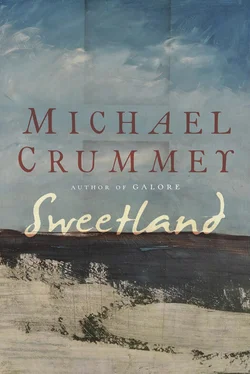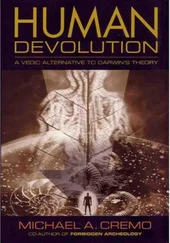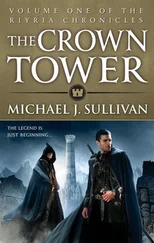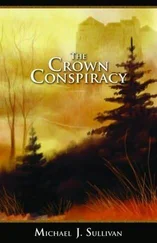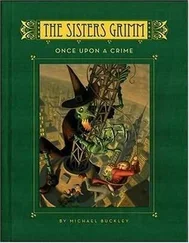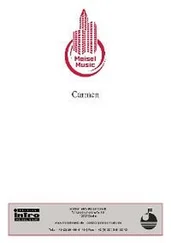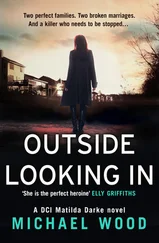If you like.
I’d have done things different, Sweetland said, all the same. And a minute later he said, You misses him something awful, I spose.
Who?
Jesse.
The Reverend flicked the light into his palm again, the pink lamp of his hand aglow across the room. Sweetland could see the dark bones of his fingers under the skin.
Yes, he said. I miss him something awful.

He took the scythe up to the new cemetery to cut the grass back around the graves.
He’d been the unofficial custodian of the cemetery for years, mowing and raking the plots and keeping up the fence and straightening headstones tipped by frost heaves. He never named it as a reason for staying behind on the island, though it sat at the back of his mind beside all the other reasons he never articulated. Watching over Jesse’s grave. But he hadn’t gone near the place in his time alone in the cove. He hadn’t even walked up to the graveyard to look in on his way down from the mash, which had been a regular side trip since his mother died.
He avoided the mowing until he risked the season’s first snowfalls, dragged his ass up the path wearing a hair shirt of dread. The grass past his knees by then and he had to cut a trail in from the gate toward the family stones. There was a new marker among them, a white wooden cross he didn’t notice until he was near enough to read the inscription, hand-lettered in black: Moses Louis Sweetland 1942–2012 .
It was set beside Jesse’s grave, in the same row as Ruth and Uncle Clar and his mother, and he laughed when he saw it, as if he’d managed to pull off an elaborate practical joke. But it was a fright to him all the same. They had never raised a marker in the graveyard for Hollis, lacking a body to mark, and it never occurred to Sweetland that someone might see fit to put one up for him. He left without finishing the mowing and spent the rest of the day anxious, expectant almost. Though he couldn’t settle on what was disturbing him exactly.
He woke in the middle of the night and lay still a few moments. Seeing clearly what the visit to the graveyard had lit up for him, what he’d been avoiding all this time — that surreal, impenetrable experience on the Fever Rocks, lashed to the ladder with the dead boy in his arms. Sweetland was shivering uncontrollably before Barry finished making the climb and he shouted after the man, wanting to be untied from the corpse. Bawling for all he was worth. Barry didn’t hear him over the ocean’s racket or ignored what he heard and Sweetland watched those distant legs disappear at the top of the ladder. He bent his face to Jesse then, rested his forehead against the cold nape of the boy’s neck. Counted off seconds and minutes to mark the time passing but lost himself in the run of numbers, which made the wait seem infinite, and he spent what felt a long while in miserable silence. His teeth jackhammering as the fits of trembling ran through him. He pissed into his soaking clothes for the brief warmth of it and was colder again moments later.
Jesse, he said, and then looked up the endless length of the ladder to stop himself talking to the dead boy. He could feel himself drifting despite the ropes at his back, his hold on the visible world slipping, and he started singing to stay awake. “Michael, Row the Boat Ashore” and “Rudolph, the Red-Nosed Reindeer” and “Twinkle, Twinkle, Little Star,” as though it was the youngster he was trying to comfort. He sang the three childish songs in an endless round, his arms like a useless tourniquet around the last of his blood.
Sweetland sat up in the bedroom’s blackness, feeling for his clothes. He lit the storm lamp in the porch and carried it outside where the flame curtsied in each gust of wind. He walked his quavering bowl of light up the path to the graveyard where the white marker was set in the ground beside Jesse’s. The cross couldn’t be left there, he knew. It was a false thing, which made the boy’s death seem even more inconsequential than it was.
He hadn’t brought any tools, thinking the cross had simply been knocked into the dirt with a maul. He set the lamp down in the grass beside Jesse’s headstone, crouched behind the wooden marker and levered his arms beneath the cross-tie to pry it loose. Pushed and hauled from the top, trying to rock it free. He brought the lamp in close and parted the grass around the base to see it had been set in concrete.
He caught a blur of movement outside the circumference of light then, a shadowed scurry that made him swing around in the dark. His heartbeat in his ears. “Fucken rabbits,” he said. Decided it was a job for daylight after all and walked down the path to his house. Refusing to allow himself a glance left or right as he went.
He went back up to the cemetery in the morning, before he’d so much as started the fire, and sawed the cross off at the base. He carried it down the hill on his shoulder. My cross to bear, he thought, ha ha. He propped it against the back wall of the house while he laid a fire in the stove and boiled the kettle. Briefly considered sawing it up and burning it, though there was something in the notion that seemed sacrilegious. After his breakfast he dragged the cross into the shed, angling it awkwardly among the copper pipe and door trim and two-by-fours and dip nets stored above the rafters. Then he took his scythe up to the graveyard and finished mowing the long grass.
There was a fall of snow the last week of October, a wet slurry that came down through the morning. Sweetland sat at the table longer than usual. Dealt himself a hand of solitaire and drank a bare-legged cup of tea. The snow covered the roofs of buildings and the packed earth along the paths and showed no sign of letting up. It would likely be gone by next morning, he knew, but it made him think about the winter he was about to sail into, how much of it he’d be forced to spend at the kitchen table with little enough to fill the time. No television, no online poker, no visitors. He’d have to find something to occupy himself besides solitaire if he didn’t want to lose his mind altogether.
There were two boxes of Queenie’s books in the porch and he brought the top one into the kitchen, set it on the table. Newspapers were as much as he’d read in his adult lifetime, the odd “Laughter, the Best Medicine” column in a Reader’s Digest at the barbershop as he waited for Duke to make a move. All the years at the lighthouse he never wanted for distraction, the job kept him busy most of the daylight hours and through part of the night as well. He’d never cracked the cover of a book.
He opened the flaps and took out a handful of paperbacks. He didn’t know what he was looking for. Something not too thick, he was thinking, something without the tiny print that made every page a torture to get through. Something that might have a bit of dirt in it — he wouldn’t put it past Queenie to enjoy a bit of dirt in her reading material. He shucked through the box, romances all from what he could tell by the flowery cover art, by the breathless titles. The cheap paper was effective in the bathroom, but he didn’t think he could stand to read the goddamn stuff. He went through the second box and was all but ready to abandon the notion when he happened on the book she was reading at her window the last time he spoke to her there. There was a bookmark just past the halfway point, which was as far as Queenie made it, he guessed. And there was something in the notion of finishing it for her that appealed to him. The way Sandra had soldiered through Queenie’s final pack of cigarettes.
“Well, maid,” he said aloud. He flipped through the first pages, turned it over in his hands, hefted it like he was trying to guess the weight. It was no small thing for Sweetland to sit at the kitchen table in the last light of the afternoon, to open the cover and iron it flat with the broadside of his hand. On the title page there was an encouraging note from Sandra to her mother that Sweetland turned past without reading. He took a breath before he started, as though he was about to jump face and eyes into a cold pool of water.
Читать дальше
